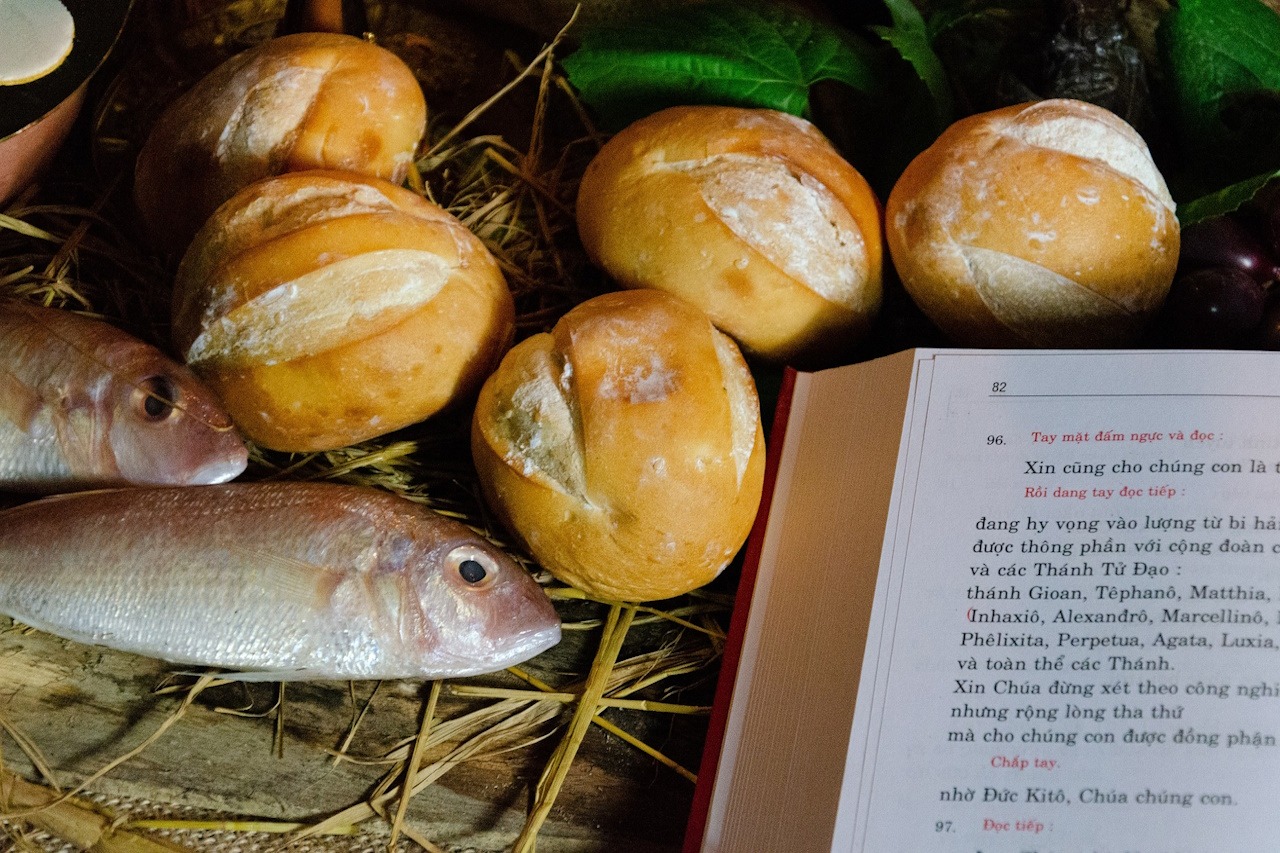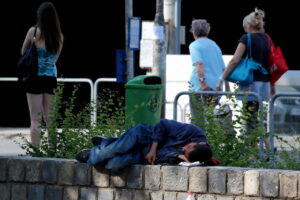Daniel 7: 9-10, 13-14 (RM) or Isaiah 55: 1-5 (RCL); Psalm 97 (RM) or 145 (RCL) 2 Peter 1: 16-19 (RM) or Romans 9: 1-5 (RCL); Matthew 17: 1-9 (RM) or Matthew 14: 13-21 (RCL).
Can you still believe in Jesus if you don’t believe in magic?
OK, this may be a weird question. But it’s a serious one.
This Sunday, August the 6th, you will hear two completely different sets of readings depending on whether you’re using the Roman Missal or the Revised Common Lectionary. The RCL uses the next set of readings in the weekly sequence, those appointed for the Tenth Sunday after Pentecost. The Gospel reading is about Jesus feeding well over five thousand people who had followed him to a wilderness setting and gathered to hear him.
On the Roman calendar of feasts and solemnities, August 6th marks the Transfiguration of the Lord, a feast whose rank means that when it falls on a Sunday, its readings replace those of the regular cycle.
Do these two concepts – a feeding story and the transfiguration – have anything whatsoever in common? Apart from the figure of Jesus, is there a single thread of connection? This is my take on it: it has to do with belief in magic. And glory.
Some years ago the late Rosemary Radford Ruether proposed a very common-sense understanding of what may have happened in this deserted place by the lake. One person had come forward with their lunch, five small loaves of bread and two fish. Jesus sat the crowd down, said a blessing over the food, broke it into pieces and handed them to the disciples to distribute. Ruether suggests that Jesus’ example inspired those present to start pulling out the food supplies they themselves had brought along, and to share them. This makes sense – of course, mothers would have packed food supplies for the family, especially considering it was some distance to nearby towns. Of course, once all the food was pooled and passed around there might have been a considerable amount left over. And of course there would have been empty baskets to collect the leftovers (where would those twelve baskets have come from otherwise?) What a marvelous message, that at Jesus’ initiative it was precisely the poor ones, those who would eat last in that society if there were any food left – the women and children – who carried out the food ministry among the crowd. It was precisely the ones who didn’t “count” who made the miracle happen. No wonder there was plenty to go around.
I remember there was some shock when Ruether’s interpretation was first published. It sounded as if Jesus’ divine power was being taken down a peg. Yet the message here is powerful enough: God levels out distinctions between rich and poor, when all share. And God is more than equal to all human need, whether physical or spiritual.
As for the Transfiguration, it reads like a miraculous vision in blinding light that sets Jesus in the company of the great patriarchs of the Jewish people, and gives a glimpse of Jesus as a divine figure. In a contemporary perspective it can sound like a divine approbation of dominative power, not only on a human but on a cosmic level: the bright light, the thunderous voice. Pair it up with the first reading from Daniel and you have an image of an overwhelmingly glorious transfer of universal, transcendent patriarchal power.
Here’s something sobering to keep in mind: August 6th is the 78th anniversary of the dropping of the first atomic bomb, on Hiroshima. The imagery is similar but cruelly inverted: intense light, now coupled with intense heat and burning, widespread flattening of the city, unimaginable human suffering, persistent contamination, ongoing effects of radiation sickness, and unthinkable destructive power entirely unprecedented in human history. This summer it’s all coming back to us with the release of the film “Oppenheimer.”
What are the limits of magic? For that matter, what are the limits of glory?
Just suppose: what if true holiness, true glory, begins when you share your lunch?
© Susan K. Roll
Susan Roll retired from the Faculty of Theology at Saint Paul University, Ottawa, in 2018, where she served as Director of the Sophia Research Centre. Her research and publications are centred in the fields of liturgy, sacraments, and feminist theology. She holds a Ph.D. from the Catholic University of Leuven (Louvain), Belgium, and has been involved with international academic societies in liturgy and theology, as well as university chaplaincy, Indigenous ministry and church reform projects.





August 6th: the feast of the Transfiguration; the first dropping of the atomic bomb; my birthday. Light and darkness, birth and death, wonder and greed… all mixed together. Thanks for this reflection, Susan; I will try to “share my lunch” in life-giving ways.
Happy Birthday Sandy. The day of your birth certainly carries a weight of historical and scriptural significance and contrasts!! And you luminously bear witness to it all!!
Happy Birthday for Sunday! =)
Thanks Susan for another thought-provoking reflection. As you say: “at Jesus’ initiative it was precisely the poor ones, those who would eat last in that society if there were any food left – the women and children – who carried out the food ministry among the crowd. It was precisely the ones who didn’t “count” who made the miracle happen.”
I marvel at how women continue this ministry in our efforts to create a “discipleship community of equals”, and in our knowing (in the words of Mary Hunt), that “if we share, among us, there is enough”.